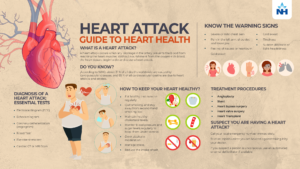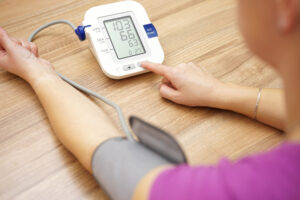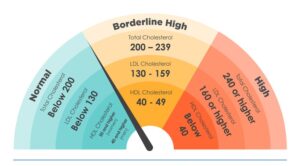Changes To Make In Your Lifestyle To Lower Your Chances Of A Heart Attack

Cardiovascular diseases (CVDs) are indeed the leading cause of mortality globally, accounting for 17.9 million deaths per year. Heart failure and stroke account for 85 percent of all deaths caused by heart-related complications. The majority of the time, it is linked to a poor lifestyle and poor nutritional choices. Although it is difficult to anticipate when a person may have a heart attack, various lifestyle changes might help reduce the risk.
How is Heart Attack Caused?
The human heart is around the size of a closed fist and weighs around 300g and 450g, situated between the rib cages and lungs. The muscle organ’s primary function is to transport blood to all regions of the body. The oxygen and nutrients our bodies require are delivered by the blood pumped by the heart. A heart attack occurs when one or more coronary arteries get clogged. This occurs over time as a result of the accumulation of fatty deposits known as plaques. An obstruction can restrict the arteries, making it more difficult for the heart to circulate blood to other regions of the body, potentially leading to a heart attack.
Following Are Some Simple Lifestyle Modifications That Can Help You Avoid Them:
Consume Nutritious Foods
The primary and most important consideration is your diet. A healthy and well-balanced diet may be the most effective method to combat heart disease and other chronic illnesses. Regularly eating certain foods can raise your cholesterol, blood pressure, and blood sugar levels, all of which can impair the normal functioning of your heart and eventually lead to a heart attack. Enrich your plate with vitamin and mineral-rich foods that are both healthful and nourishing. Limit your consumption of harmful fats, refined foods, and processed foods.
Continue To Be Active
To enjoy a long and disease-free lifestyle, people of all ages must be active. Being active does not necessitate purchasing an expensive gym subscription. All you have to do is make sure you aren’t lying sedentary for the majority of the day. Whether you want to do housework, go for a walk, or practice yoga, there is something for everyone. All you have to do now is keep moving. Incorporate cardiovascular activity in your schedule if at all possible. These kinds of activities help to strengthen your cardiac muscles.
Keep Your Blood Pressure In Check
Abnormal blood pressure is one of the primary causes of heart disease. Elevated blood pressure that persists can cause artery damage by making them less elastic. It reduces blood and oxygen supply to your heart, eventually leading to a heart attack. Another heart attack can be caused by even low blood pressure. As a result, you must regularly check your heart rate and take the required steps to maintain it.
Maintain A Healthy Blood Sugar Level
Diabetic heart disease is more likely to occur if you have high blood pressure. Blood arteries and nerves that control the heart and blood vessels can be damaged by high blood sugar levels or uncontrolled blood sugar levels. According to studies, around 68 percent of those over 65 who have diabetes die from a heart attack. To maintain your blood sugar under control, check your blood sugar level twice a week and eat foods with a low glycemic index.
Maintain A Healthy Cholesterol Level
Cholesterol is a lipid that is made up of fat and protein. It is necessary for our bodies to generate healthy cells and keep us warm. However, too much harmful cholesterol might build up in your arteries. It shrinks the blood vessel walls, requiring our hearts to exert more effort to pump blood and oxygen to various parts of the body. A high blood pressure level raises the risk of a heart attack or stroke.
Maintain A Healthy Stress Level
Your mental health, as well as physical well-being, are inextricably linked. Whenever you are mentally calm, your body is forced to deal with the consequences. Excessive high stress raises activity in a part of the brain associated with emotion processing, raising the risk of heart diseases such as heart attack and stroke. Yoga and meditation can help you control your stress levels.
Maintain A Healthy Weight
According to research, those who are overweight or obese are more likely to have a heart attack than those who are not. Being overweight raises the risk of high blood pressure and high cholesterol, both of which are key contributors to cardiovascular disease. Try to maintain a healthy weight by eating well, exercising often, and adopting good lifestyle practices.
Limit Your Alcohol Intake And Quit Smoking
Extreme alcohol consumption and chain-smoking both increase the risk of heart disease. Nicotine and liquor can raise blood sugar levels, cause weight gain, and increase the risk of a heart attack. If you smoke cigarettes and consume alcohol on a regular basis, attempt to reduce your consumption in order to live a long and healthy life.
Last But Not Least
Aside from the characteristics listed above, your age, gender, ethnicity, and family history can all increase your risk of cardiovascular disease. It’s difficult to avoid a heart attack; all you can do is live a healthy lifestyle to reduce your chances.








